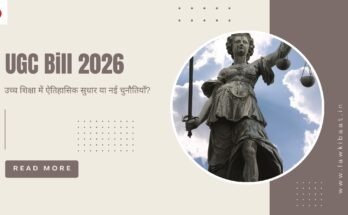The Delhi High Court abetment to suicide ruling has become a landmark judgment that brings clarity to a sensitive and often misunderstood area of criminal law in India — Section 306 IPC, which deals with abetment to suicide. This ruling provides much-needed legal guidance on what constitutes abetment to suicide under IPC, especially in cases involving marital discord and family disputes.
In this comprehensive blog, we will explore the nuances of the Delhi High Court abetment to suicide ruling, dissect the legal meaning of abetment to suicide, examine how courts prove abetment to suicide in court, and highlight the implications of this judgment on suicide and domestic disputes law in India.
What is Abetment to Suicide Under IPC?
To understand the impact of the Delhi High Court abetment to suicide ruling, it is vital first to understand what abetment to suicide means under Indian law.
Section 306 of the Indian Penal Code (IPC) defines abetment to suicide as the act of instigating, engaging in conspiracy, or intentionally aiding someone to commit suicide. Abetment can be direct or indirect and is punishable with imprisonment for up to ten years, along with a fine.
In many cases, Section 306 IPC abetment to suicide charges are invoked in situations involving marital discord and suicide, family disputes, harassment, or emotional trauma. However, the key legal question often arises: What constitutes abetment to suicide?
The Legal Meaning of Abetment to Suicide
The term abetment carries a specific legal meaning. It is not enough for there to be mere unhappiness or conflict in relationships for abetment to be established. Abetment requires:
- Active instigation or encouragement, or
- Intentional aiding or assistance that leads to the suicide.
The Delhi High Court abetment to suicide ruling clarifies that ordinary marital or family disputes—no matter how painful—do not automatically amount to abetment to suicide under IPC unless there is clear evidence of instigation or encouragement.
Delhi High Court Abetment to Suicide Ruling: Summary
Recently, the Delhi High Court delivered a significant judgment emphasizing that routine marital discord or family quarrels cannot be equated to abetment of suicide unless accompanied by clear proof of instigating or abetting behavior.
The Court noted that many cases involving suicide due to domestic issues do not meet the high threshold required to invoke Section 306 IPC because:
- Ordinary arguments, coldness, or misunderstandings between spouses or family members do not amount to criminal abetment.
- There must be a direct causal link between the accused’s actions and the victim’s decision to commit suicide.
- Vague or general allegations of harassment without concrete evidence are insufficient.
This ruling is a critical development because it helps prevent misuse of Section 306 IPC in marital and family disputes and ensures that criminal law targets only genuine cases of instigation or abetment.
Marital Discord and Suicide Abetment: Legal Perspective
Cases involving marital discord and suicide abetment have historically posed difficult legal challenges. Courts often face the task of differentiating between emotional distress caused by family issues and criminal liability arising from active instigation.
The Delhi High Court abetment to suicide ruling underlines that Section 306 IPC is not meant to penalize all forms of domestic unhappiness or disputes. Instead, the focus is on proving the accused’s intentional role in promoting or facilitating the suicide.
Several case judgments highlight this distinction:
- Mere coldness or refusal to communicate does not amount to abetment.
- Threats or harassment must be specific, deliberate, and proximate to the act of suicide.
- Evidence such as suicide notes, witness testimony, or documented threats can play a crucial role in proving abetment.
Family Disputes and Legal Abetment: What Courts Look For
In disputes involving families, it is common for allegations of legal abetment to suicide to be made. However, courts require stringent proof of instigation to suicide, especially in cases related to inheritance, dowry, or domestic violence.
The Delhi High Court abetment to suicide ruling stresses that family disputes alone cannot suffice to establish criminal liability under Section 306 IPC.
Courts typically look for:
- Specific acts or omissions by the accused that encouraged or facilitated suicide.
- Clear motive and timing showing that the accused’s conduct led to the victim’s fatal decision.
- Corroboration through evidence such as recordings, messages, or third-party witness accounts.
This careful scrutiny protects families from frivolous litigation and ensures that the law targets only genuine cases of abetment.
What Constitutes Abetment to Suicide: Key Elements
The Delhi High Court abetment to suicide ruling helps clarify the key legal elements required to prove abetment under Section 306 IPC. They include:
- Instigation: Directly provoking or urging the victim to commit suicide.
- Conspiracy: An agreement between two or more persons to aid suicide.
- Abetment by aiding: Assisting or facilitating the act of suicide by providing means or support.
The Court ruled that all these must be proved beyond reasonable doubt.
Proving Abetment to Suicide in Court
Proving abetment to suicide in court involves establishing a clear cause-effect relationship between the accused’s actions and the victim’s death. The Delhi High Court abetment to suicide ruling stresses the importance of:
- Evidence for abetment to suicide: Documentary proof, suicide notes, or witness testimonies that directly link the accused’s conduct to the act.
- Timing and proximity: The accused’s actions must be closely linked in time to the suicide.
- Mental state of the deceased: Courts may consider if the deceased was suffering from mental illness or depression, which can influence the judgment on abetment.
Without strong evidence, courts are hesitant to convict on Section 306 IPC charges.
Suicide and Domestic Disputes Law: Current Legal Landscape
The intersection of suicide and domestic disputes law has evolved with increasing judicial sensitivity. The Delhi High Court abetment to suicide ruling aligns with a broader judicial trend that seeks to:
- Protect the rights of the accused from baseless allegations.
- Recognize the complexity of domestic relationships and emotional distress.
- Encourage proper investigation and evidence gathering before invoking criminal charges.
This approach aims to balance justice for victims while safeguarding individuals from wrongful prosecution.
Delhi HC Judgment on Suicide Cases: Notable Precedents
The Delhi High Court has delivered multiple judgments reiterating the principles highlighted in the recent ruling:
- In several cases, courts have granted anticipatory bail in suicide abetment cases when the evidence was weak or circumstantial.
- The Court has often held that acquittal in abetment to suicide cases is warranted if the prosecution fails to prove instigation or aiding.
- Courts have acknowledged that mental illness or unstable psychological conditions in the deceased can negate the direct influence of accused persons.
These precedents contribute to a growing body of law that demands precise proof before convicting under Section 306 IPC.
Anticipatory Bail in Suicide Abetment Cases
Given the serious consequences of abetment to suicide charges, the Delhi High Court has laid down guidelines on anticipatory bail in suicide abetment cases:
- Courts will consider the nature and strength of evidence before granting bail.
- Bail is more likely if there is no prima facie evidence of instigation or active involvement.
- The accused’s history, social standing, and likelihood to interfere with the investigation are also considered.
This protects innocent individuals from unnecessary detention and helps maintain the integrity of investigations.
Evidence for Abetment to Suicide: What Is Needed?
To succeed in prosecution, evidence must establish:
- A direct link between the accused’s conduct and the suicide.
- Acts such as threats, harassment, or inducement proven through messages, recordings, or witness testimony.
- The deceased’s state of mind, corroborated by medical reports or psychological evaluations.
The Delhi High Court abetment to suicide ruling reinforces that without such evidence, criminal liability cannot be imposed merely based on marital or family discord.
Mental Illness and Abetment Charges: Impact on Cases
An important aspect considered by courts is the mental health status of the deceased:
- If the victim was suffering from mental illness or depression, it may affect the link between alleged abetment and the act of suicide.
- The Delhi High Court has acknowledged that mental instability can sometimes be the predominant cause, rather than external instigation.
- This understanding influences verdicts and helps ensure fair trials.
Acquittal in Abetment to Suicide Cases: When Does It Happen?
The Delhi High Court has frequently acquitted accused persons in abetment cases due to:
- Lack of sufficient evidence proving active instigation.
- Failure to establish a direct causal connection between the accused’s actions and suicide.
- The deceased’s prior history of mental health issues or suicidal tendencies.
These acquittals underline the necessity for prosecution to meet the stringent burden of proof under Section 306 IPC.
Instigation to Suicide Law India: The Way Forward
The Delhi High Court abetment to suicide ruling is a call for a balanced approach in instigation to suicide law in India. It advocates:
- Careful and thorough investigations.
- Avoiding the misuse of Section 306 IPC for personal vendettas in family disputes.
- Awareness among police and judiciary about the legal thresholds for abetment.
This ruling is a positive step towards ensuring justice is delivered fairly, protecting both victims and the accused.
Conclusion
The Delhi High Court abetment to suicide ruling marks a pivotal moment in Indian criminal jurisprudence relating to Section 306 IPC abetment to suicide. It clearly distinguishes between ordinary marital discord and suicide abetment, emphasizing that only deliberate and active instigation constitutes abetment.
This judgment protects individuals from wrongful accusations while ensuring that true cases of instigation are prosecuted with the seriousness they deserve. It also aligns with evolving legal standards on suicide and domestic disputes law, mental health considerations, and evidentiary requirements.
For anyone involved in or affected by suicide-related legal matters, understanding this ruling and the principles of abetment to suicide under IPC is essential. As courts continue to refine the interpretation of Section 306 IPC, this ruling from the Delhi High Court remains a landmark for legal clarity and justice.
For further updates on legal rulings and interpretations related to suicide laws and family disputes, stay tuned with Law Ki Baat.




